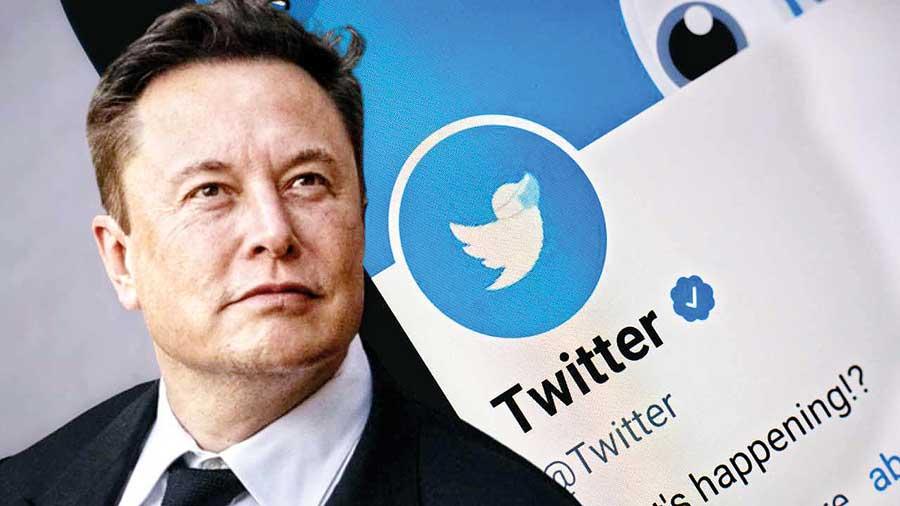07 Dec 2022 - {{hitsCtrl.values.hits}}

Twitter is still the best tip repository for journalists, the author reiterates
The Aragalaya protest waves would not have been successful if not for social media. When I began by research career into journalism and digital trauma, way, way back 2019 pre-pandemic days, there were still those who considered online and offline as separate entities
This is the time of the year that newspapers start working on the year that was segments. 2022 will not give that much trouble to fill a page or more with such a diary. Taking a leaf off the traditional the new web-based outlets could try the tag line – 10 things that made 2022 or 2022 in 30secs.
traditional the new web-based outlets could try the tag line – 10 things that made 2022 or 2022 in 30secs.
It has been seismic in terms of Sri Lanka’s political culture. A president was forced out by public protests and another was elected through parliament. The country in the meantime hit such lows that had never been seen before, even during the worst years of the war. It is not out of the woods, not by a long way.
No matter which side prevails, the true victor in any war is the person selling weapons to both sides. It seems likely that this experiment will conclude with bankruptcy and Twitter falling into the hands of creditors who will have their own ideas of what it should be and whom it should serve
The Aragalaya protest waves would not have been successful if not for social media. When I began by research career into journalism and digital trauma, way, way back 2019 pre-pandemic days, there were still those who considered online and offline as separate entities.
We are no longer there. The online and the offline now supplement, contradict and influence each other seamlessly.
Of late, I have been part of dialogues on whether journalists and media rights groups should leave Twitter given the toxicity that has seeped into the platform post-Musk takeover. The toxicity is rising, there is no doubt in that.
“Participating in Twitter—with its world-spanning reach, its potential to radically democratize our discourse along with its virtue mobs and trolls—always required a cost-benefit analysis. That analysis began to change, at least for me, immediately after Musk took over,” Jealni Cobb, the Dean of the Columbia School of Journalism wrote soon after leaving Twitter. He had a following of over 400,000.
I understand this line of thinking. But in communities like Sri Lanka, Twitter plays another role. It is possibly the only place that journalists can reach into post time sensitive information that may not be to the liking of those in power
He added, “to the extent that people remain active on Twitter, they preserve the fragile viability of Musk’s gambit. The illusory sense of community that still lingers on the platform is one of Musk’s most significant assets. No matter which side prevails, the true victor in any war is the person selling weapons to both sides. It seems likely that this experiment will conclude with bankruptcy and Twitter falling into the hands of creditors who will have their own ideas of what it should be and whom it should serve. But at least in the interim it’s worth keeping in mind that some battles are simply not worth fighting, some battles must be fought, but none are worth fighting on terms set by those who win by having the conflict drag on endlessly.”
I understand this line of thinking. But in communities like Sri Lanka, Twitter plays another role. It is possibly the only place that journalists can reach into post time sensitive information that may not be to the liking of those in power. It is the one place they can look to connect immediately with organisations and persons who can help them when the need is dire.
This usefulness of this toxic platform stems from a combination of the platforms popularity among those interested in news, lack of awareness on other platforms and the lack of alternative platforms with the versatility of Twitter. It is the platform that most journalists and others tuned into the news have grown used to.
Because there are 10,000’s of these kind of users on Twitter, I feel that leaving the platform as a reaction to Elon Musk-led toxicity is betraying this community. A community that looks up to those like me not only to link them to ways and means of gaining career lifts but also for their own safety.
This usefulness of this toxic platform stems from a combination of the platforms popularity among those interested in news, lack of awareness on other platforms and the lack of alternative platforms with the versatility of Twitter
I have had dozens on Twitter messages from colleagues and sometimes strangers seeking help because the information they have or have put on. It is still the best tip repository for journalists.
Their safety is reason enough for me to stay on, at least until we find another platform that replaces Twitter’s role.
The writer is a journalism researcher and the Project Lead at the Dart Centre Asia Pacific. He can be contacted on [email protected]
10 Jan 2025 8 minute ago
10 Jan 2025 1 hours ago
10 Jan 2025 2 hours ago
10 Jan 2025 2 hours ago
10 Jan 2025 2 hours ago